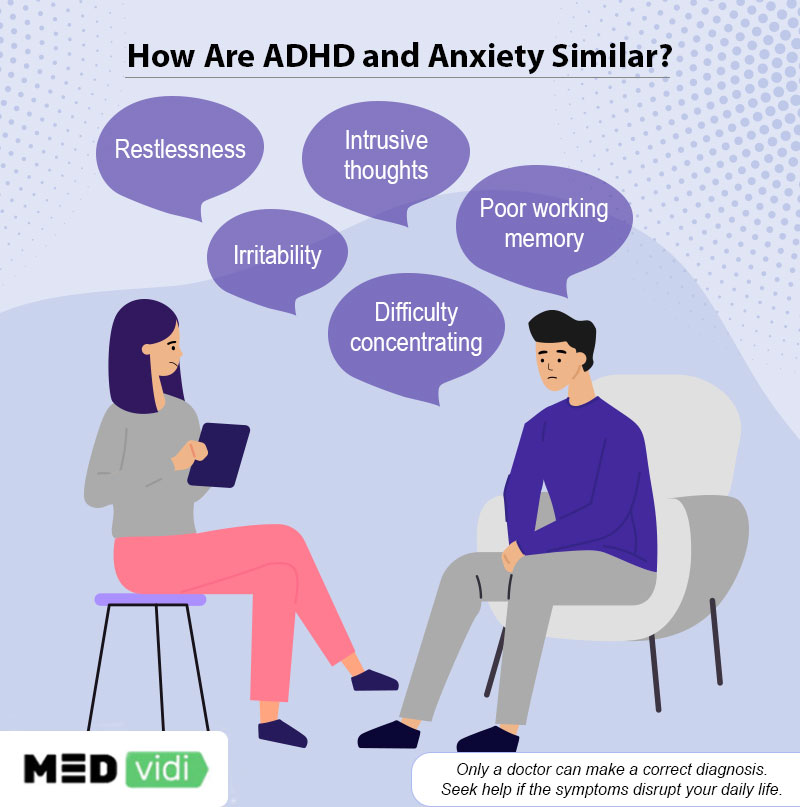Another beneficial technique is body scanning, which involves mentally scanning one’s body for areas of tension or discomfort. This practice encourages individuals to connect with their physical sensations and can promote relaxation. To perform a body scan, individuals can lie down or sit comfortably, close their eyes, and systematically bring attention to different parts of their body, noticing any sensations without judgment. This technique not only fosters mindfulness but also helps individuals become more aware of their physical state, which can be particularly useful when managing ADHD symptoms.
Additionally, the rise of technology has introduced various tools aimed at assisting individuals with ADHD. Apps designed for time management, organization, and task tracking have become increasingly popular. These digital solutions often incorporate gamification—turning tasks into games to motivate users and sustain their attention. One such app, "FocusMate," connects users with accountability partners to work alongside them in real-time, creating a virtual coworking environment that promotes focus and productivity.
In conclusion, mindfulness techniques offer a valuable tool for individuals grappling with the challenges of ADHD. By promoting awareness, focus, and emotional balance, mindfulness practices not only enhance daily functioning but also empower individuals to lead more fulfilling lives. As research continues to unveil the benefits of mindfulness, it is clear that these techniques can serve as a beacon of hope for those navigating the complexities of ADHD.

Technology is becoming a key tool in ADHD management. Apps and digital solutions help ADHD users with time and task organization. These resources can be particularly beneficial for those who struggle with traditional methods of planning and task management, offering innovative ways to stay on track.
Physical activity is another crucial factor in managing ADHD symptoms. Research indicates that regular exercise can have a positive effect on mood, attention, and cognitive function. Schools and workplaces are beginning to recognize the benefits of integrating movement into daily routines. Programs that incorporate short physical activity breaks during lessons or work hours can lead to increased focus and overall productivity. Experts recommend that individuals with ADHD engage in at least 30 minutes of moderate physical activity most days of the week.
ADHD has long been treated with stimulant medications such as amphetamines. Medication improves ADHD symptoms for many but isn't suitable for everyone. Many patients experience side effects, and others may not respond adequately to medication. Consequently, researchers have been exploring alternative methods to enhance focus and productivity in individuals with ADHD.
Dietary Interventions for ADHD
Nutrition-based strategies are gaining attention for improving ADHD-related focus. Nutrient-dense foods, including omega-3s and antioxidants, benefit
ADHD attention regulation-related brain health. Additionally, maintaining a balanced diet and regular exercise can contribute to overall well-being and improved concentration.
Campaigns now educate people that ADHD is a neurological issue, not a moral failing. Initiatives like ADHD Awareness Month encourage conversations about the disorder, providing resources for families and individuals seeking support. IEPs and accommodations are
helping schools create supportive environments for ADHD learners.
Another beneficial mindfulness technique is the body scan, which encourages individuals to mentally check in with different parts of their bodies. By paying attention to physical sensations, individuals can foster a deeper connection to their bodies and emotions, ultimately helping to regulate their responses to stress and anxiety. The body scan can serve as a grounding exercise, allowing individuals to pause and refocus when feeling overwhelmed.
Comprehending ADHD is the first step to fostering an inclusive and supportive environment. By breaking the stigma, advocating for awareness, and providing adequate support, we can create an environment where everyone, regardless of their neurological differences, has the opportunity to succeed. Embracing inclusivity highlights the valuable contributions of ADHD individuals.
Research has shown that mindfulness techniques can have a profound impact on individuals with ADHD. Studies indicate that regular mindfulness practice can enhance attention span, increase emotional regulation, and improve overall well-being. Mindfulness exercises, such as meditation, deep breathing, and body scanning, help individuals cultivate a greater awareness of their thoughts and feelings, enabling them to respond to situations with greater clarity and control.
In conclusion, the landscape of ADHD treatment is evolving, with new strategies providing hope for individuals seeking to improve their focus and overall quality of life. Healthcare advancements suggest a hopeful future for individuals living with ADHD. Comprehensive ADHD strategies enable success in both personal and professional realms.